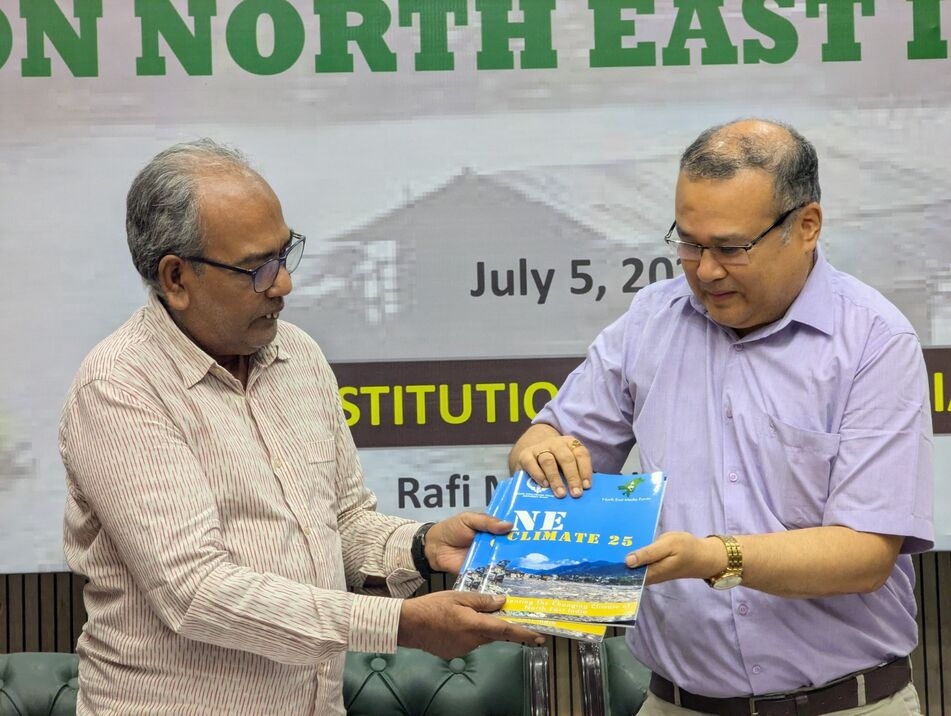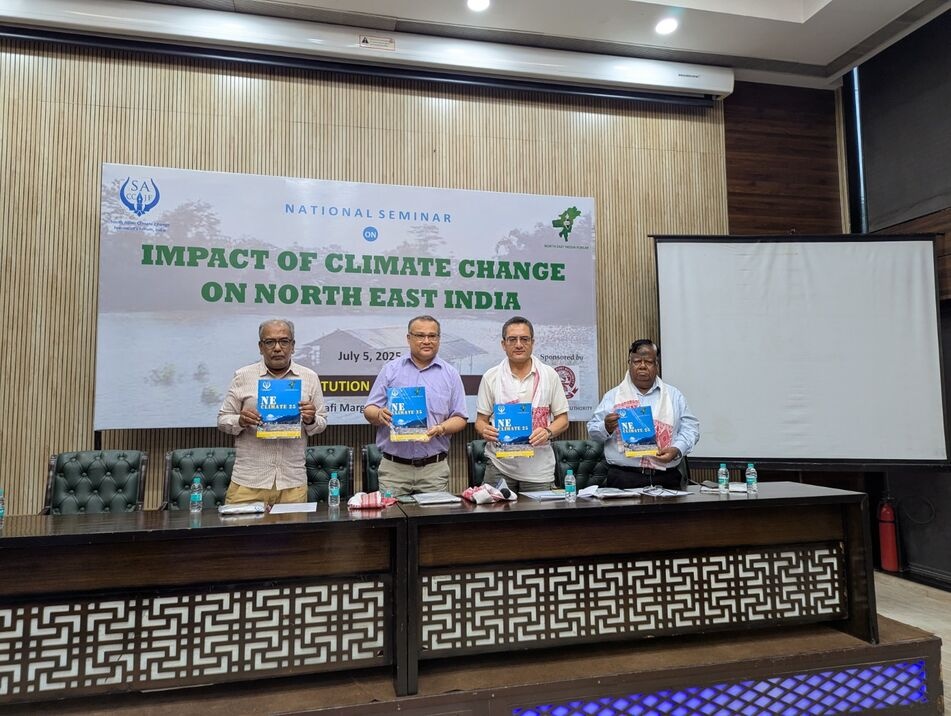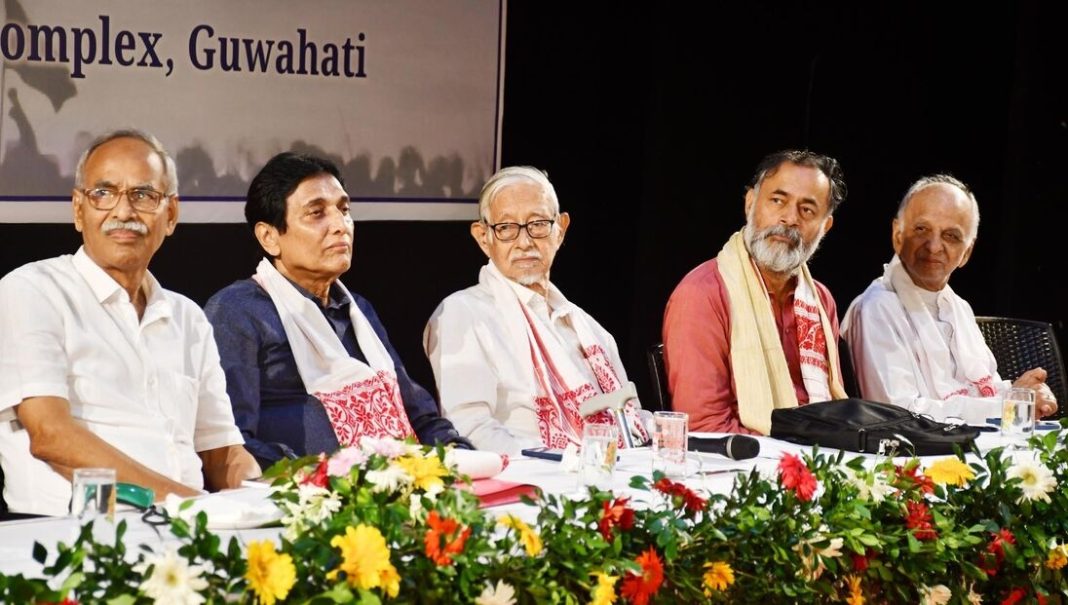Guwahati, July 6: Urging immediate, community-driven climate action, experts at a national seminar in New Delhi on Saturday warned that Northeast India faces escalating ecological threats due to climate change and requires urgent, region-specific strategies.
Held at the Constitution Club of India, the seminar—“Impact of Climate Change on Northeast India”—was jointly organized by the South Asian Climate Change Journalists’ Forum and the Northeast Media Forum. The event brought together a wide range of participants including researchers, journalists, policy experts, environmentalists, government officials, and students.

The Northeast region, located in the fragile Eastern Himalayan foothills, is particularly vulnerable to climate-driven disasters such as floods, landslides, droughts, and earthquakes. The seminar highlighted the need for climate strategies rooted in the region’s realities.
Dr. Kiranmay Sarma, Professor at Guru Gobind Singh Indraprastha University and an expert in geospatial technologies, presented case studies and emphasized the role of remote sensing in environmental monitoring. He also underscored the importance of indigenous knowledge systems in combating climate change and conserving biodiversity. “Remote sensing has successfully identified aquifers in water-scarce regions like Meghalaya’s sacred groves,” Dr. Sarma noted.

Souparna Lahiri from the Climate Land Ambition and Rights Alliance made a strong case for decentralized, community-led climate action plans. “Most current climate action plans are consultant-driven and top-down. Instead, we need grassroots policies that reflect community knowledge, priorities, and lived experience,” he said. Lahiri called on all northeastern states to develop their own climate action policies rooted in local context.

CK Nayak, General Secretary of the South Asian Climate Change Journalists’ Forum, stressed the need for a comprehensive and coordinated response to climate threats. “The Northeast cannot afford fragmented efforts. We need a holistic approach that addresses deforestation, land misuse, and poor planning,” he said.
Sanjib Kumar Baruah, President of the North East Media Forum, called for immediate action to tackle the climate crisis, saying, “The time to act is now.”

The seminar opened with a welcome address by journalist Ankur Kalita and concluded with a vote of thanks by Pranjal Pratim Das, General Secretary of the North East Media Forum.
A new journal titled NE Climate 2025 – Documenting the Changing Climate of North East India was also released during the event. The publication was edited by Asish Gupta, CK Nayak, and Huidrom Authoba Meetei, offering documented insights into the evolving climate landscape of the region.




